Stuff Your Eyes Full of Wonder With the 10 Best Sci-Fi Movies, Ranked
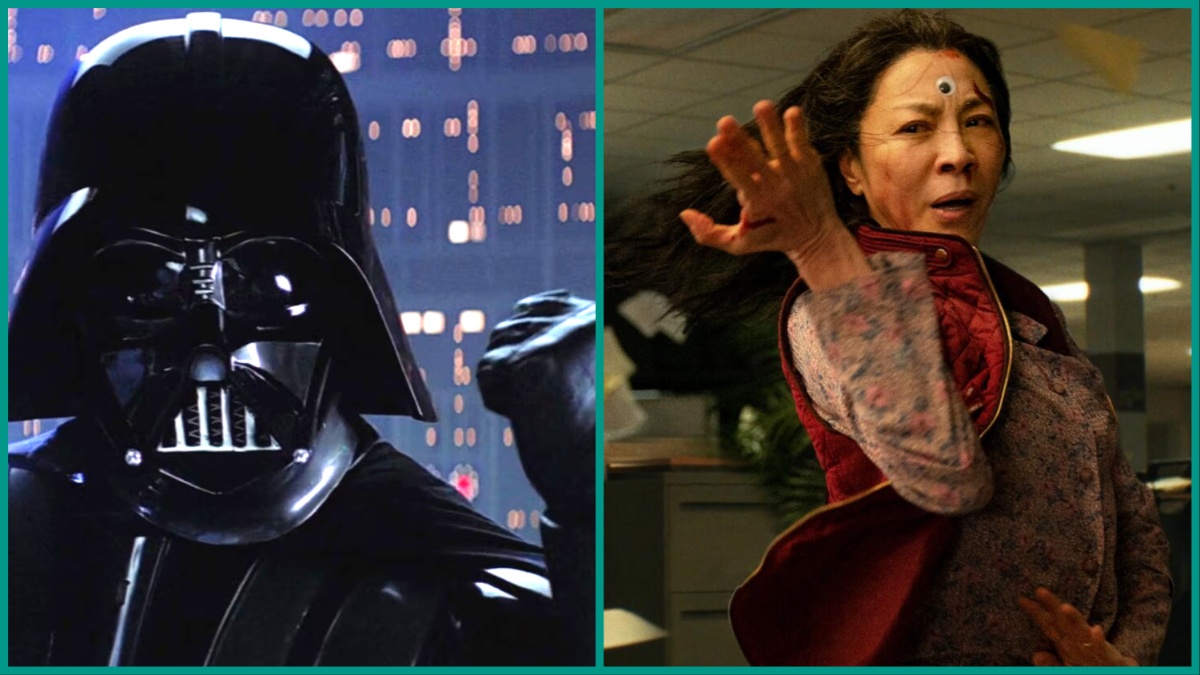
When it comes to science fiction and fantasy, many a genre nerd may find themselves fantasizing about leaving our world behind and stepping foot into one of the many universes offered up by the scribes, directors, and professional dreamers of the world. What’s neat about sci-fi in particular, however, is that you don’t need to fantasize about living in such a universe, because we’re barreling towards a late post-capitalist, AI-rampant, Musk-tinged, dystopian meme hell at the speed of light at the moment.
Okay, so maybe living in a sci-fi world that isn’t Star Trek isn’t all it’s cracked up to be, but you have to admit that our reality creates sci-fi narratives better than anyone could possibly write.
Or do you? For what monopoly the real world has on satire, there’s more than a few sci-fi movies that we’ll gladly watch instead of the current trajectory of the future, and these are 10 of the greatest in history.
10.) Black Panther
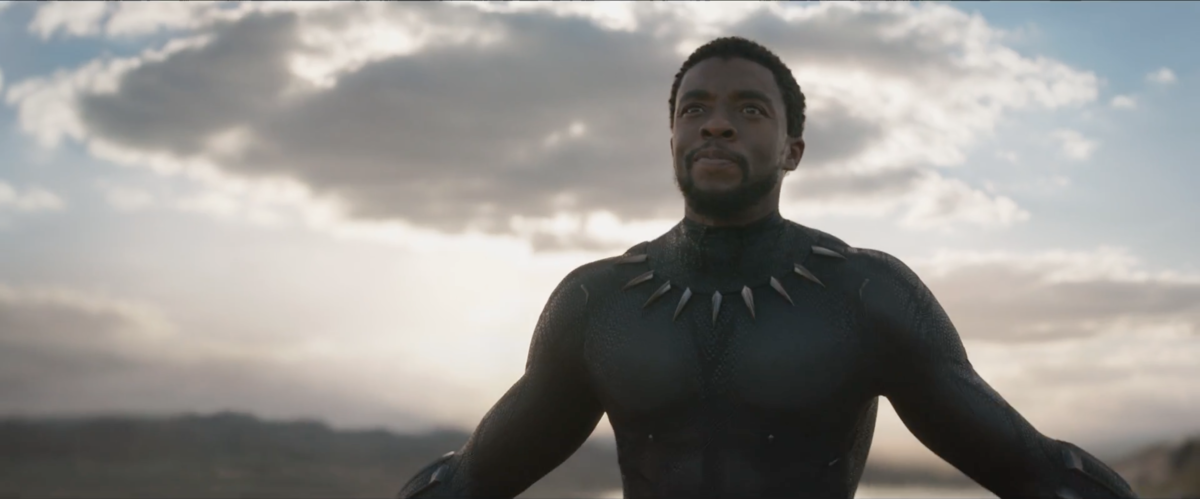
Despite its prevailing cultural impact, very few pieces of the Marvel Cinematic Universe can claim to tango with the very best that cinema has to offer. Though, to be fair, the franchise rarely claims to be trying to do so, and even if that’s a disappointing decision, it’s not really one you can fault it for.
It’s for that reason that Black Panther is all the more captivating and important of a film in not only the sci-fi space, but in the genre fiction space as a whole. An undeniable cultural boon in the history of Black America, Black Panther saw the late, great Chadwick Boseman and company deftly combine the expected superhero fare with an absolute chasm’s worth of kinetic political musing and Afro-futurist ethos. It’s a shame that the studio full-sent the “villain” label on Killmonger the way it did, but the fact that Black Panther was the first superhero movie to receive a Best Picture nomination at the Academy Awards says a lot about the landing that it so masterfully stuck.
9.) Donnie Darko
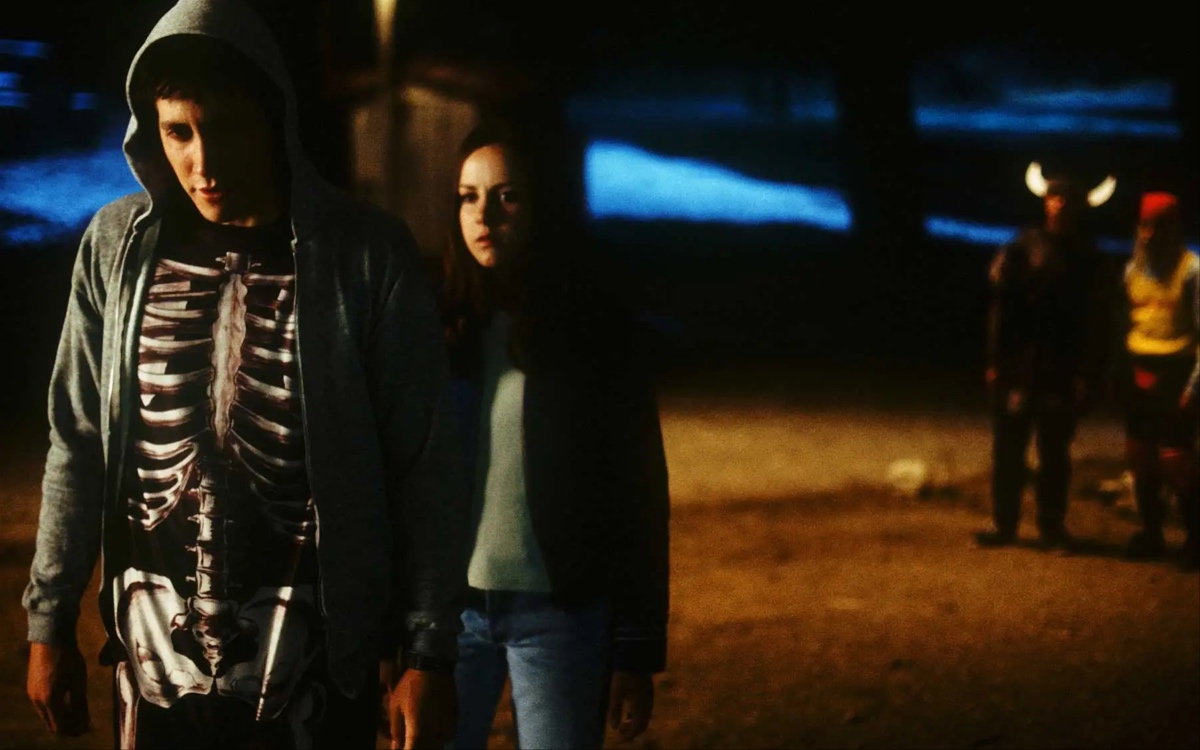
Let’s get two things straight here: I do not make the rules, nor would I like to make the rules, because I don’t consider Donnie Darko a film that falls under the sci-fi umbrella. But, since the prevailing consensus dictates otherwise, I’ll happily bend to popular opinion if it means getting the chance to shout out Donnie Darko as the triumph that it is.
The film (which, to summarize, is effectively the cinematic equivalent of the Bible if it were authored by Edgar Allan Poe, J. Robert Oppenheimer, and one or two substances of questionable legality) is a darkly entrancing meditation on dissonance, specifically the sort that stems from being driven by love in a world that’s driven by fear, and is subsequently ill-prepared and unwilling to understand such love. Indeed, Donnie Darko is one of the very best testaments to the notion that art comforts the disturbed and disturbs the comfortable, and the way that Jake Gyllenhaal’s eponymous protagonist bears that wonderfully perverted torch is a sight to behold.
8.) Interstellar
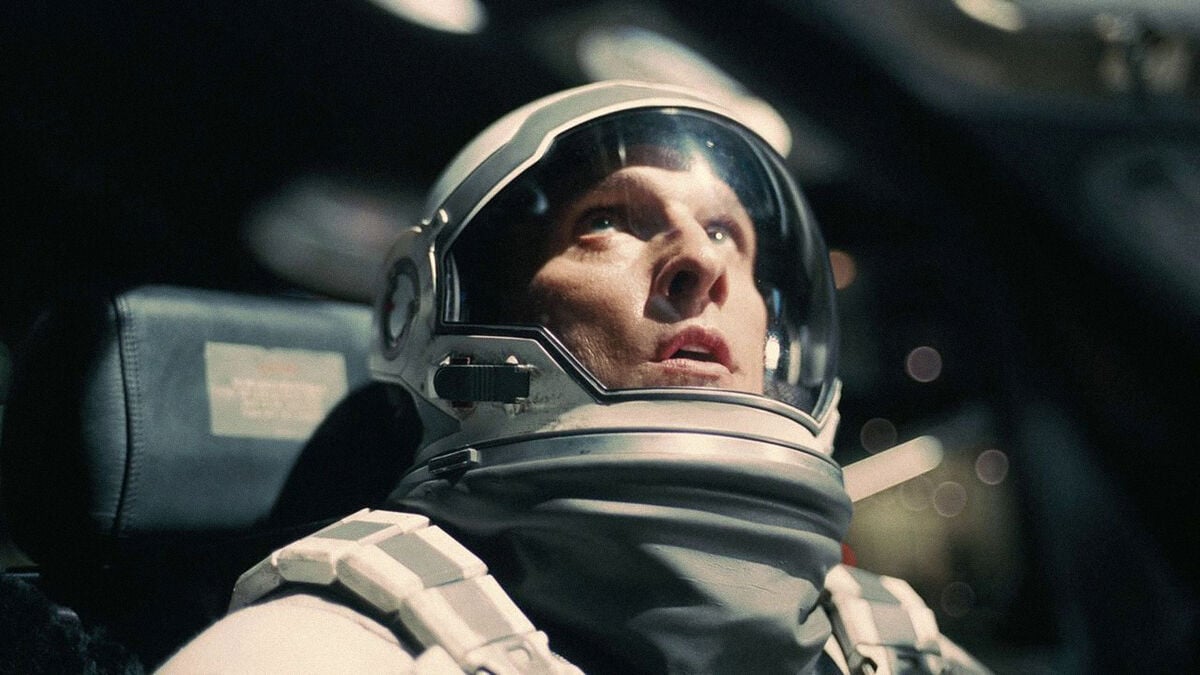
Few can lay claim to the crown of the cinematic set piece, fewer still can weave said crafts into just one part of the whole, but perhaps only Christopher Nolan can birth a cinematic puzzle on the scope of Interstellar, the sci-fi epic that goes beyond its awe-inspiring spectacle and somehow manages to honor both the insurmountable essence of nature, and its self-proclaimed arch-nemesis, the human spirit.
Say what you will about Nolan’s self-indulgent creative nature, but until I write a piece of dialogue that’s up to par with “Love isn’t something that we invented. It’s observable … Love is the one thing that we’re capable of perceiving that transcends dimensions of time and space,” I’ll be of the opinion that he can have as big of an ego as he wishes.
7.) Everything Everywhere All at Once
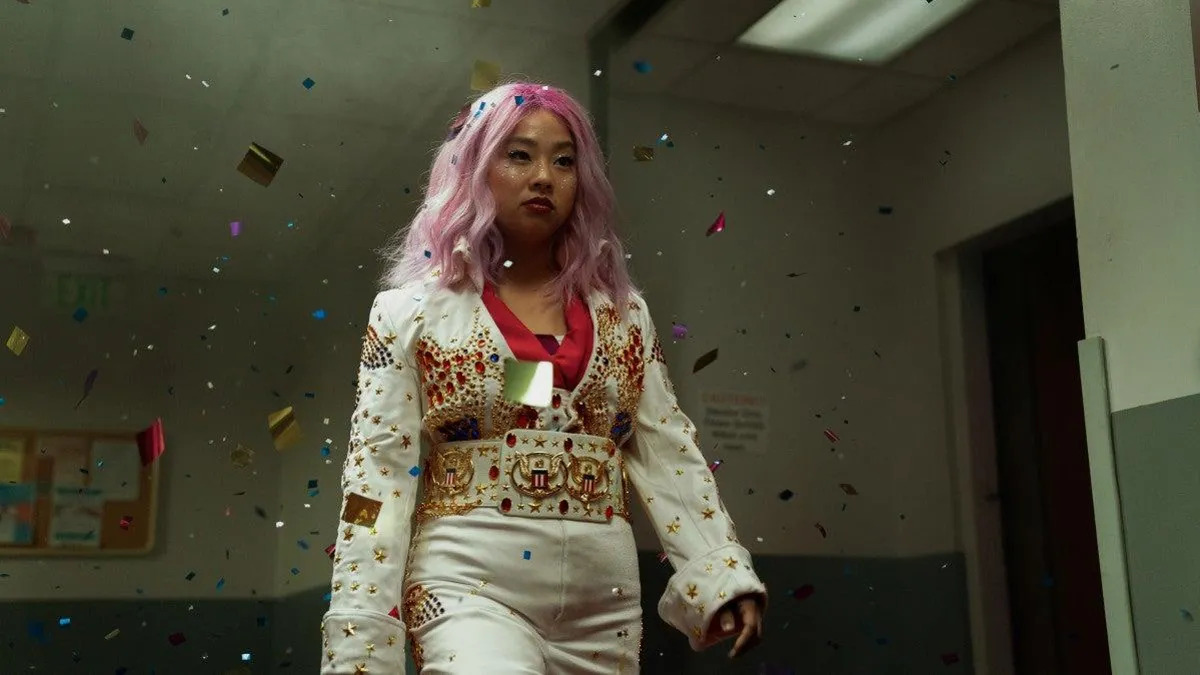
Everything Everywhere All at Once—the world’s most recent awards-season darling—lives up to its name in every sense of the word, from its sci-fi-leaning genre anarchy to its pervasive insistence on, both denotationally and subtextually, reminding us all that the foundation of fate is action.
Indeed, much like how the Daniels seized the possibility of presenting a multiverse story that didn’t rely on a surplus of capes and crusaders, so too does Michelle Yeoh’s protagonist set an example of going above and beyond for everything worth fighting for in this world, be it love, beauty, family (however you choose to define it), or the bliss of frolicking amongst the absurd, and it’s a damn fine example.
6.) The Matrix
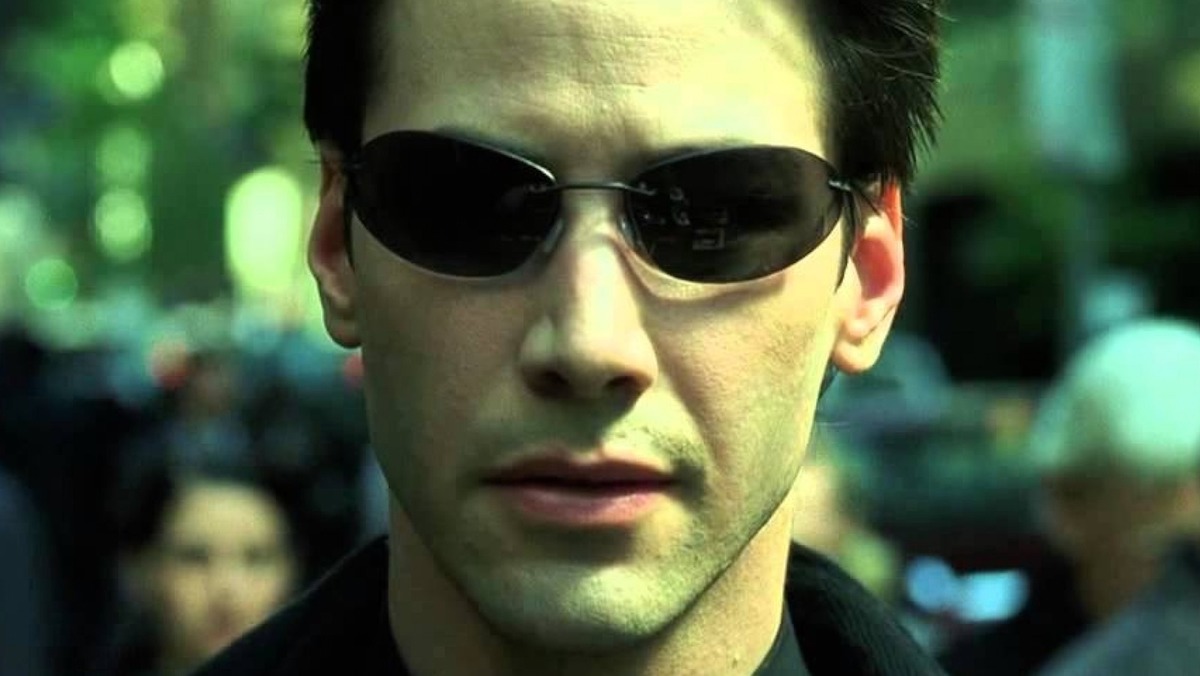
Tomato shield in hand, I’ll lay my cards on the table and say that I do not like The Matrix. I think it’s unsure about which parts of itself it wants to use as either set dressing or the presentational meat. I reject the notion that any accessible “red pill” discomfort is all-encompassing, as well as the notion that the pursuit of absolute truth is anything but grossly, detachedly arrogant. Despite the rich bibliography that it very clearly wants to honor, I think The Matrix trips over itself in trying to hit all of its desired marks while also being an action movie.
And yet, I still can’t deny how important the Wachowskis’ oldest child in their magnum opus is to the realm of sci-fi cinema; its game-changing visual effects alone is all the context one needs to understand that, and I have little trouble admitting that its themes are every bit capable of sparking something incredibly important and engaging within the right audiences, even if I’m not one of them.
5.) Jurassic Park
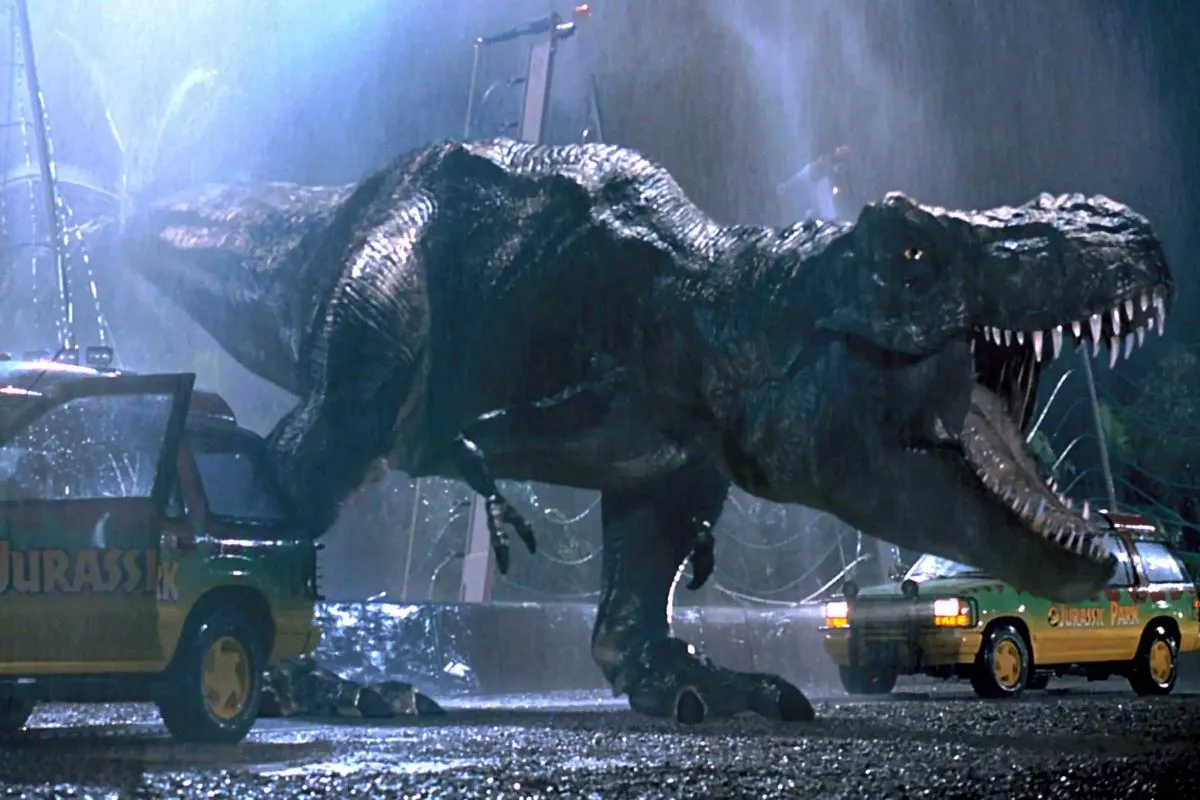
Every bit as timely as it was back in 1993, the decades haven’t stopped Steven Spielberg’s Jurassic Park from having just about everything going for it: its legendary movie magic, its status as a benchmark for Spielberg’s “father of the blockbuster” title, and its nigh-untouchable ability to communicate the dangers of playing God in a way that audiences across generations have been and will be captivated by for ages to come.
Indeed, if there was ever a movie out there that one could pop on at any given moment without hearing even a breath of a complaint in response, Jurassic Park makes a strong claim for such a distinction.
4.) Star Wars
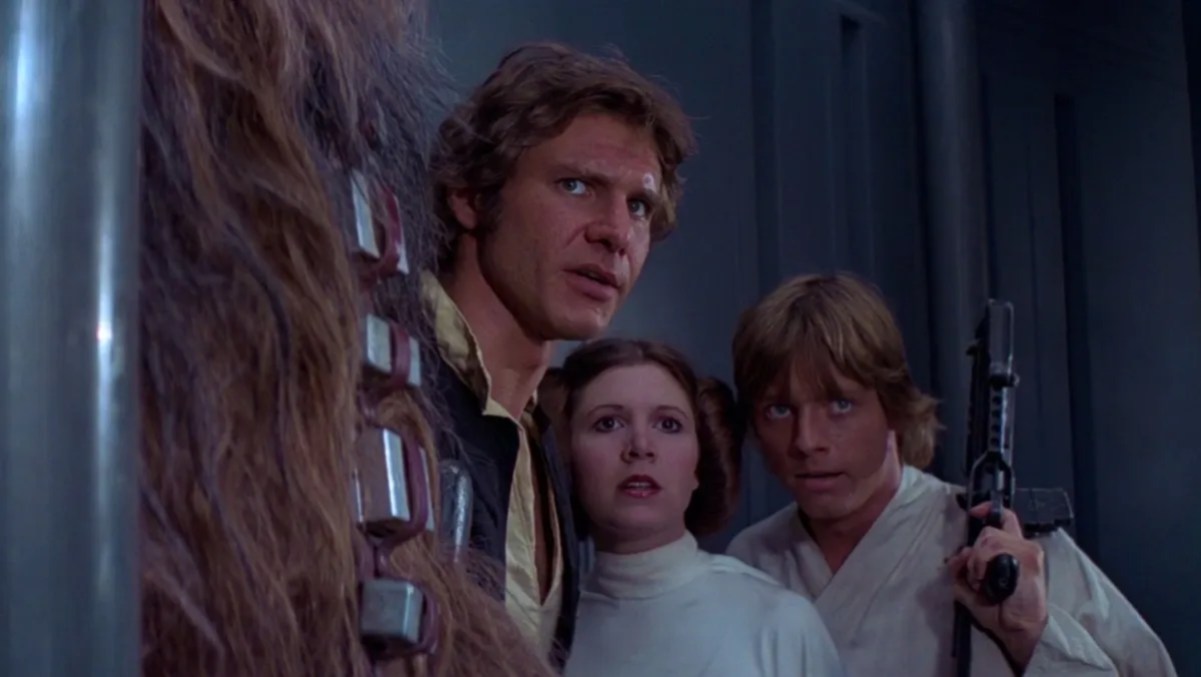
What’s there to be said about the original Star Wars film that hasn’t already been said a million and one times? From the characters’ infectious camaraderie to its legendary status in the realm of both independent cinema and pop culture, Star Wars‘ clout transcends language.
The very fact that “One day, George Lucas sat down and wrote Star Wars” is a sentence whose weight can be almost universally acknowledged around the world is perhaps the best remaining way to talk about Star Wars without getting insufferably moot.
3.) Blade Runner
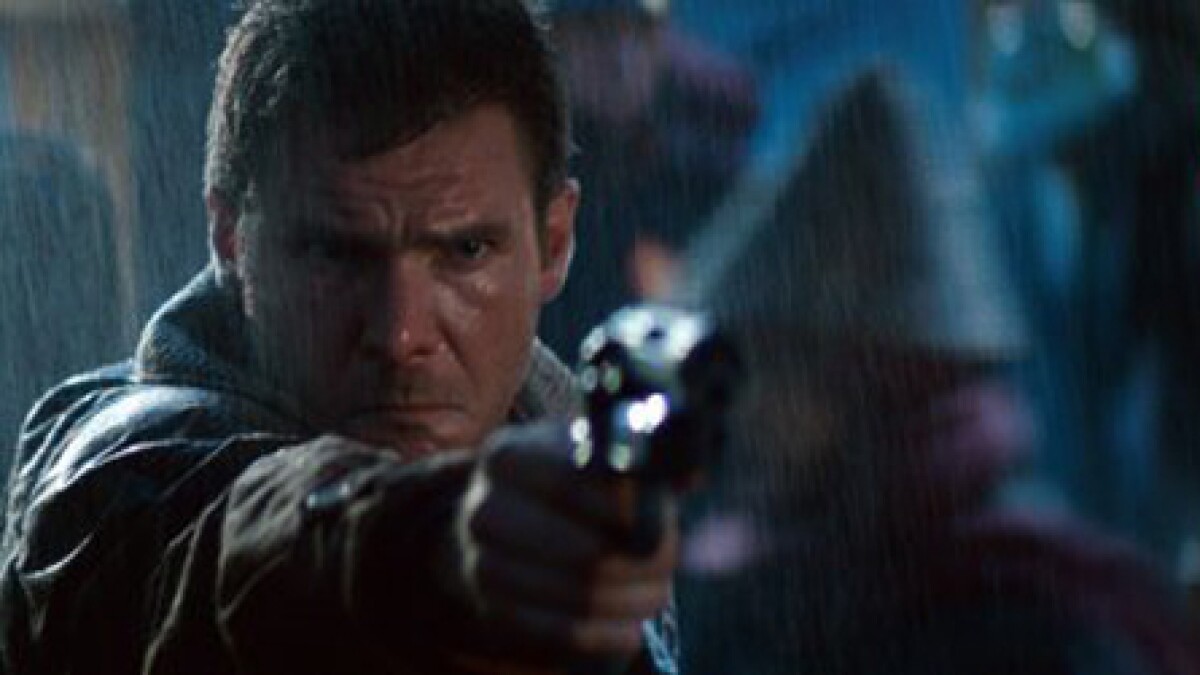
Blade Runner is a movie that has been over-analyzed and interpreted to the point beyond death, and I’ve developed a both reflexive dread towards talking about it and a dubious grasp on which thoughts on the film are my own as a result.
So, I implore you to seek out a copy of whichever of Blade Runner‘s seven cuts you can most easily get a hand on, give it a watch, and aggressively avoid reading any external analyses on it. It was a euphoric experience for me right up until I failed at that second step, and I wish for you, dear reader, to replicate my good choices whilst avoiding my mistakes if you have yet to embark on a Blade Runner journey yourself.
2.) Alien
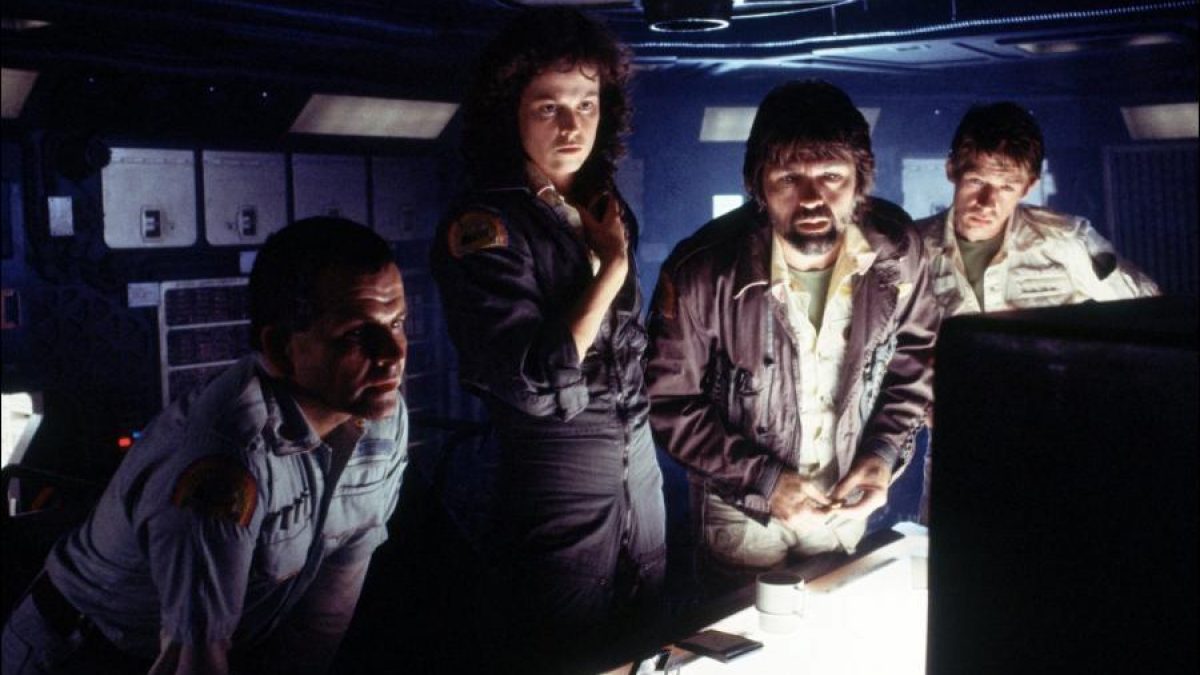
Between Ridley Scott’s Alien and James Cameron’s Aliens, I consider the latter to be the more well-rounded film; Cameron’s take on the Xenomorphs elevates a number of cinematic aspects from those of its predecessor, so why is the original on the list?
Because Alien and Aliens are effectively neck-and-neck as movies, and the fact that Alien can keep pace with its sequel using just one, transcendentally perfect asset (namely its fielding of tension and suspense) in its vast toolbox is a testament to not only the mold that Alien broke, but the one that it left behind as well.
1.) 2001: A Space Odyssey
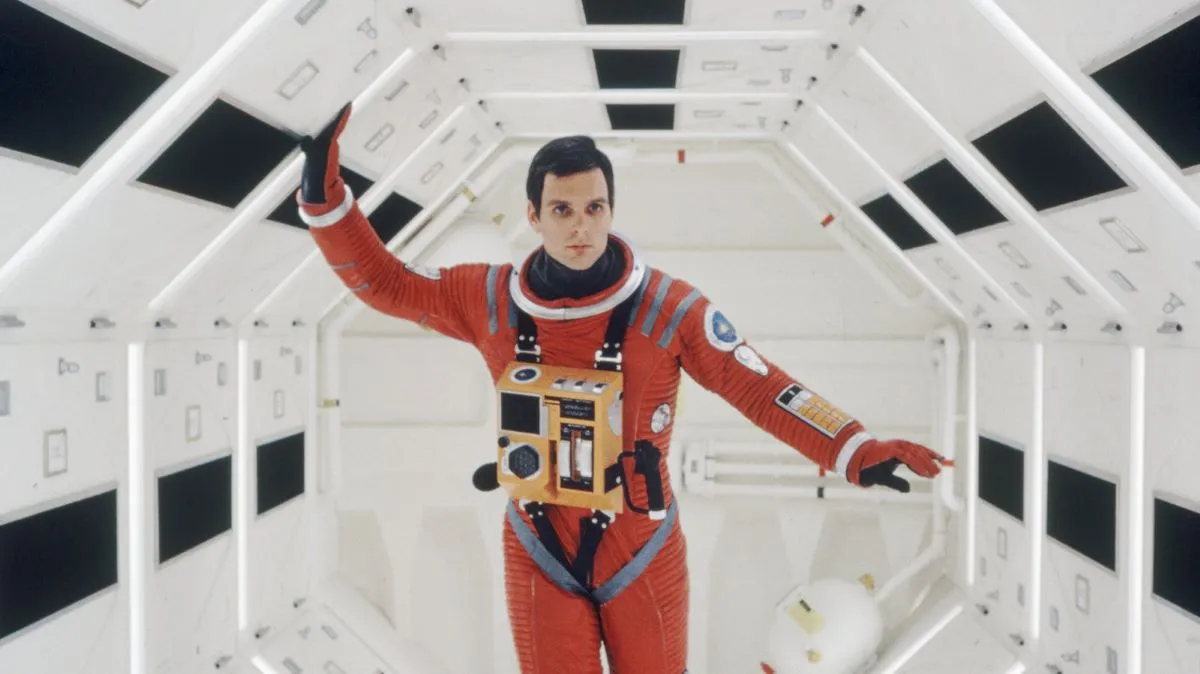
There are three certainties in life: death, taxes, and the near-certainty that the number one pick for any list of the best sci-fi movies worth its salt is going to be 2001: A Space Odyssey; call me unoriginal, but I’m not about to violate the sci-fi film equivalent of the Geneva Conventions by putting it any lower.
It’s one thing to have identified and packed your film full of the richest themes in the sci-fi space all the way back in 1968, but it’s quite another to do so in a way that arguably remains the gold standard of those themes over five decades on. From addressing our contentious, often tragic relationship to the unknown, to our hypocritical attitudes around the nuances of creation, to the tragic fate we invite as our relationship to the mythopoeic is exponentially extinguished, Stanley Kubrick won sci-fi with 2001: A Space Odyssey, and we’re all just basking in the afterparty.
(featured image: Lucasfilm / A24)
Have a tip we should know? [email protected]
